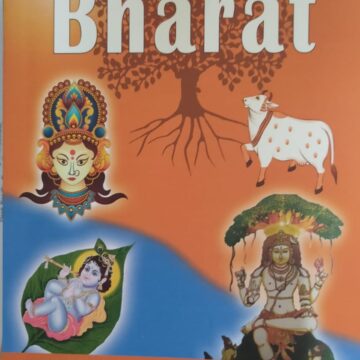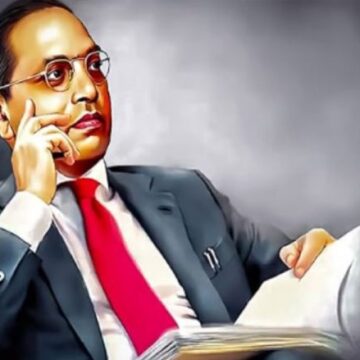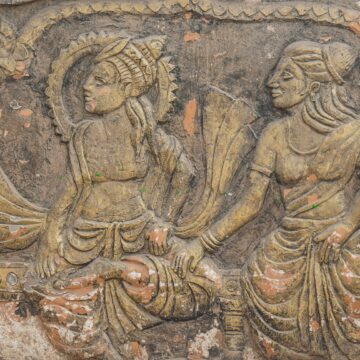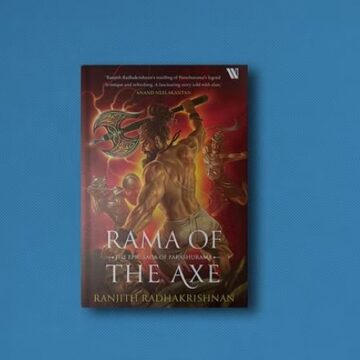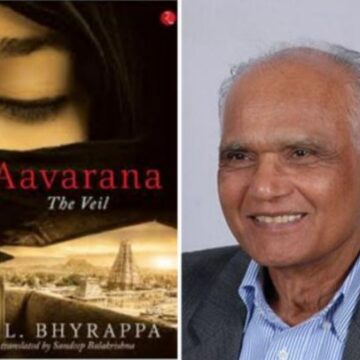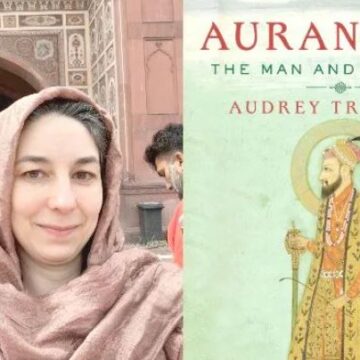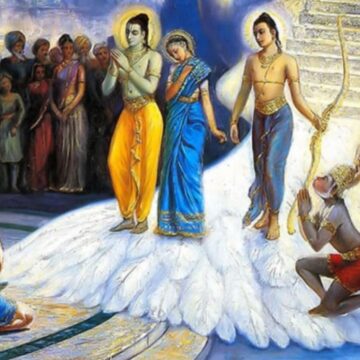The Ghent School, led by Prof. Balagangadhara, challenges colonial narratives that have shaped India's understanding of religion, caste, and culture. It argues that India's traditions differ fundamentally from Western religious frameworks, emphasizing rituals over doctrinal beliefs. The school advocates for decolonizing Indian social sciences by rediscovering indigenous perspectives and rejecting imposed categorizations. By understanding India's traditions on their own terms, it proposes a more nuanced approach to multiculturalism and identity.
Tag: <span>religion</span>
The Divine Tree of Bharat – A Review
Dr. Pingali Gopal writes a summary-review of Achanta Nagarjun's recent book "The Divine Tree of Bharat". In the book, the author delves into the timeless values of Sanatana Dharma such as interrelatedness and harmony that permeate the land of Bharat. Drawing from ancient texts and metaphors, Nagarjun counters Western narratives of a "primitive ancient India", highlighting the enduring achievements of Indian civilisation in arts, science, and spirituality. While critiquing the impact of colonial and Marxist distortions, the author calls for a revival of cultural pride and knowledge, essential to preserving the essence of Bharatiya identity amidst modern threats.
When Scientism Overshadows Science: An Orthodox Critique of the Sophistry of Evolutionism
"It is a modern tendency within religious factions to seek a synthesis and synchronization between the domains of Religion and Science. This inclination manifests in the attempts of forceful amalgamation of both domains, with the rejection of traditional interpretations of Religion and deliberate efforts to reformulate it to seamlessly align with the framework of Science."
Ambedkarism: A Malediction Upon Indian Society — A Critical Evaluation of the Ideals of Equality, Affirmative Action, and the Pursuit of Social Justice
The elusive dream of ‘Equality’, whether in the form of ‘Opportunity’ or ‘Outcomes’, tantalises many, yet evaporates like a mirage in the real drama of human society. Do social justice, equality, and reforms reign supreme as transcendent values? Do religion, culture, tradition, and civilization solely encompass oppression and backwardness, or do they extend beyond the horizons of the contemporary cultural Marxist worldview we’ve embraced?
Harsh Sharma explores the effects of Ambedkarism on the above in the Indian context.
Eternal Love Story of Prabhu Shri Rama and Mata Sita
The Ramayana is an epic of unparalleled significance in Hindu mythology. It is rightly and widely regarded as a story that epitomizes righteousness, duty, sacrifice, and devotion. At its heart, however, lies the eternal love story of Prabhu Shri Rama and Mata Sita; a divine saga that transcends the boundaries of time and serves as the very essence of the epic.
“Rama of the Axe” by Ranjith Radhakrishnan – A Review
A comprehensive review of "Rama of the Axe" by Ranjith Radhakrishnan, and his treatment of plots and characters beyond what is mainstream, including but not limited to the protagonist Bhagwan Parashurama and the antagonist Kartyavira Arjuna.
Aavarana (The Veil) By S. L. Bhyrappa – Translated by Sandeep Balakrishnan – A Review
Rohan Raghav Sharma reviews SL Bhyrappa's "Aavarana - the veil" translated from the original Kannada into English by Sandeep Balakrishnan. He explores the multi-layered plot, the flow of the story, and evolution of the characters while also touching upon salient points of criticism along with his own critique of the book.
On Audrey Truschke’s “Aurangzeb: The Life and Legacy of India’s Most Controversial King”
"Bridging the chasm between the historical Aurangzeb and this reimagined (and largely imaginary) Aurangzeb is a daunting task, but Truschke makes her case with the chirpy enthusiasm of an Aurangzeb fangirl writing a puff piece in People magazine on her idol.
The received historiography on Aurangzeb is riddled with outlandish hoaxes that have gone unchallenged for decades. Truschke’s book is a worthy addition to this genre since it refreshes our memories of these hoaxes while enthusiastically manufacturing new ones."
An incisive and witty review of Audrey Truschke's book on Aurangzeb, and her source material, by Keshav Pingali.
Bridging Ancient Philosophies: The River of Consciousness
"Rather than getting entangled in doctrinal differences, it might serve us better to find the confluences, the shared understandings, and the universal truths that have guided humanity for millennia. In that spirit of unity, the river of consciousness presents a philosophical bridge, beckoning us to ponder, reflect, and ultimately understand."
Trying to Understand Shri Rama
An analytical look at some of the more controversial actions of Shri Rama, from the lenses of ancient as well as modern thoughts.


